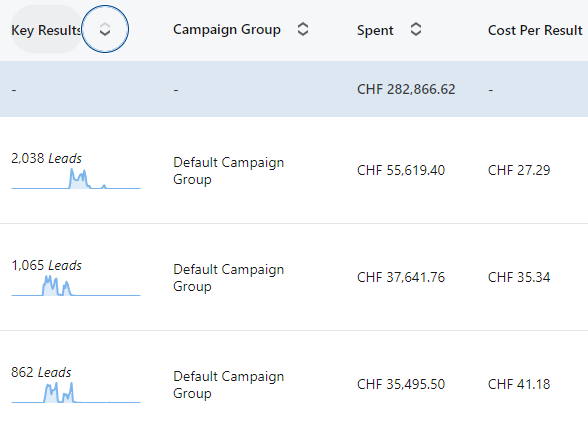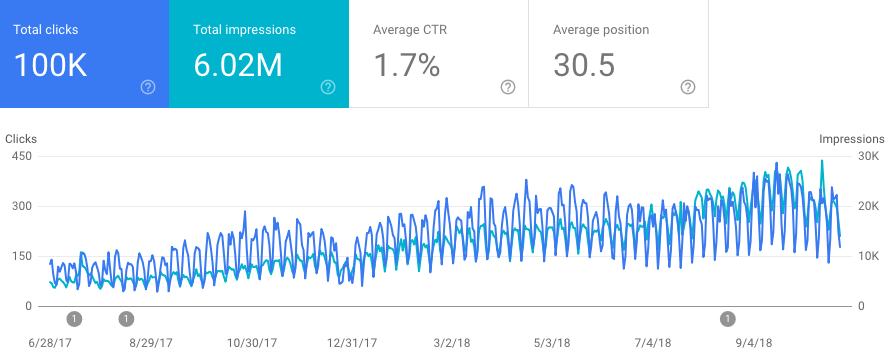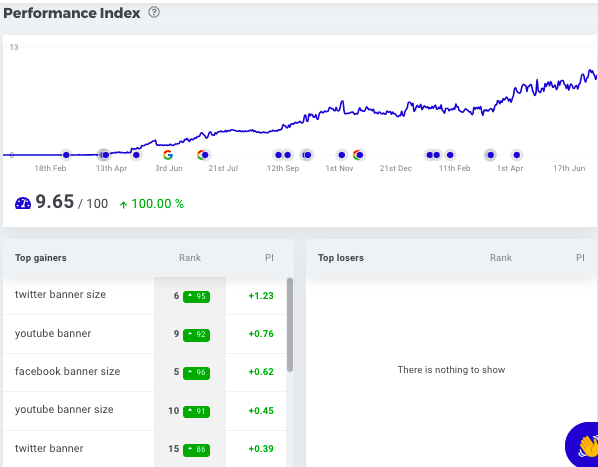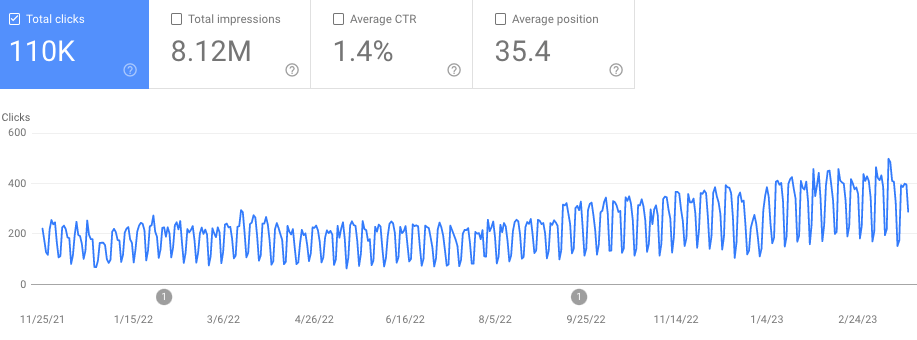Multilingual PPC Services
Multilingual Keyword Research
Multilingual pay-per-click requires researching keywords in specific languages, taking into account that local search volumes for various regions may differ, which can affect budgets and result forecasting. Sometimes in multilingual PPC general tools can show you zero search volume, while in reality this keyword can drive traffic and leads. Leveraging PPC tools that are focused on local keyword research, I am able to provide more precise search volume, forecasted clicks and conversions data for my clients. For example, "cloud services" in English will be translated to "Cloud-Dienste" in German, whereas the propoer term used by local techies would be "Cloud-Lösungen".
Local Competitor Research
Before starting any PPC campaigns, it is vital to research local competitor companies and their ad strategies. Typically I explore the value proposition, ad assets, landing pages, ad copies, keywords and, most importantly, costs. The modern ad intelligence tools allow to understand how much your competitors spend, what messages do they promote and how do they change them dynamically during campaigns, what kind of traffic do they get, what keywords do they switch on and switch off in their campaigns, and even more. This enables my clients to build effective campaigns right from the start, avoiding costly experiments.
Landing Page & Ad Localization
If your multilingual PPC agency recommends you to simply translate landing pages and ads in local language, in my opinion, this is not efficient. Certainly, professional translation is required, but this is not enough as your message needs to sound culturally appropriate and engaging. If there is such an opportunity, I try interacting with a native speaker (if I don't know the language) to make sure the landing page message and the ad content both resonate accurately. If your budget is tight, then I don't exclude the use of automated translations making sure it's aligned with manual proofreading recommendations.
Campaign Planning & Structure
The key to effective multilingual PPC is the structure of your ad account. I recommend my clients to run one campaign for one single language, even though it is not required by Google. However, if you're running a campaign with several language settings simultaneously, your automated bidding strategy might maximize conversions only from a single language, which will hurt your diversity of leads. In multilingual and multirigional engagements, I master a "one language-one campaign" approach by duplicating campaigns, but certainly also tweaking keywords and ad copies after each duplication.
Campaign Management & Reports
At least 3 times per week I am in the ad account checking its performance, because multilingual PPC campaigns require extensive control procedures. For instance, the "Search Terms" report, which is used to prevent irrelevant clicks, should be checked regularly. In addition, the general performance metrics like cost-per-click, conversion rates, cost-per-lead and others need to be monitored to ensure the budget is spent in the most effective fashion. Above all, I provide detailed monthly reports to my clients indicating all the metrics above and my suggestions for their improvement.
Remarketing & Display
Advanced display remarketing strategies are a must in multilingual PPC to get conversions. I insist on the language segmentation for remarketing audiences, and therefore, each language needs a separate remarketing campaign with bespoke ad creatives to effectively move prospects through their sales funnel. Moreover, your multilingual PPC ads will show on third-party websites in the display network and need to be adapted to the local context and cultural sensitivity. With multilingual display and remarketing, you're able to boost conversions and increase the local brand knowledge.
Paid search only drives growth when it speaks your customers’ language.
Running PPC campaigns in multiple languages is not just about translating ads and keywords.
When language and intent diverge, translated campaigns fail to match what people actually search or click on. That leads to wasted spend, poor quality traffic, and weak conversions — even if impressions and clicks look healthy.
Multilingual PPC is different. It requires understanding search intent in each language, crafting ad messaging that resonates, and setting bids that reflect real commercial value — not estimated volume. It also means adapting landing experiences so visitors see familiar language, meaning, and context when they arrive.
I audit and optimise paid search across languages so your campaigns perform, not just run. The work evaluates whether your keyword choices truly reflect how multilingual audiences search, whether ad messaging aligns with their expectations, and whether bidding and targeting logic captures intent instead of ambiguity.
Good multilingual PPC shifts you from generic global campaigns to targeted, efficient spend that drives measurable conversions. It stops money from leaking on irrelevant clicks and starts delivering traffic that can become real business outcomes — leads, enquiries, and sales.
You keep focus on business priorities.
I make sure your paid search connects with search behaviour in each language and delivers outcomes that matter.
My Multilingual PPC Languages
Languages I speak fluently
● English (IELTS 9.0)
● German (B2 certificate)
● Russian (native)
Using localization & proofreading
● Italian
● Spanish
● Brazilian Portuguese
● Scandinavian (Swedish, Norwegian, Danish, Finnish)
● Balkan (Croatian, Slovenian, Slovak)
Multilingual PPC Portfolio
Struggling with underperforming ads and wasted budget?
Testimonials
Awards & Certificates
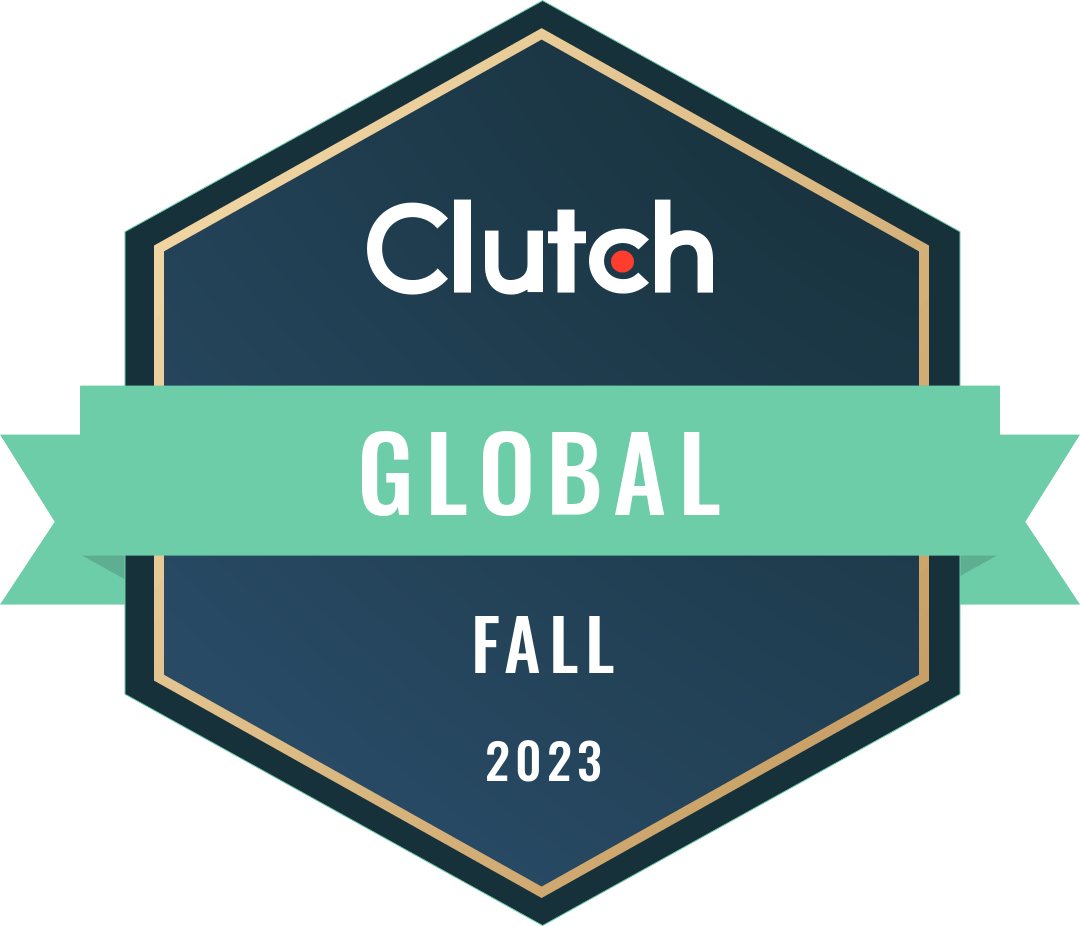
Honored as a Global Leader by Clutch in Fall 2023
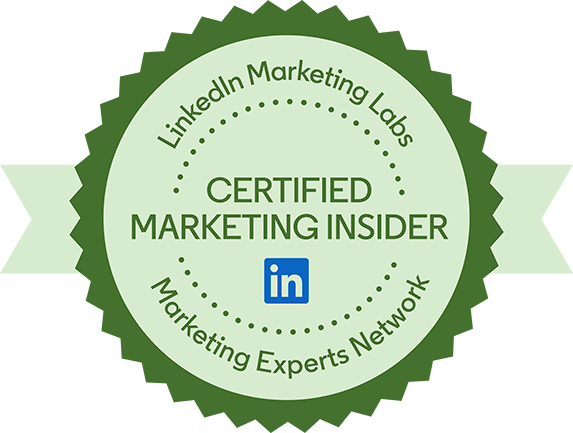
LinkedIn Certified Marketing Insider with Case Study

Award-winning PPC, SEO & Digital Strategy Expert in 2024
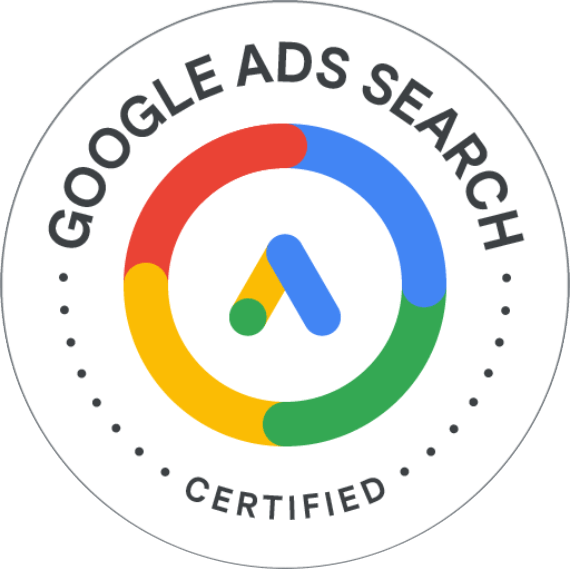
Google Ads & Google Analytics Certified Individual

Recognized as a Top Freelance SEO Expert in 2024
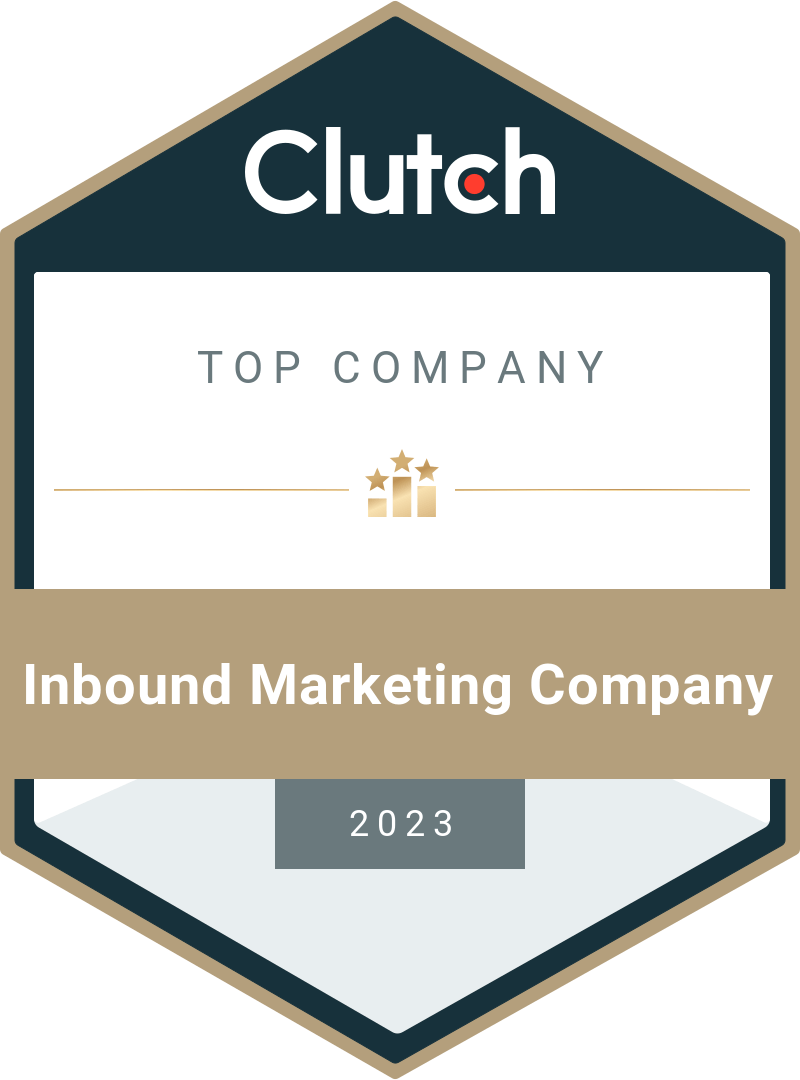
Top Inbound Marketing Company by Clutch in 2023
Free Evaluation Offer: Forecast Your Campaign ROI Using Multilingual PPC
Multilingual PPC launch requires a commitment to invest in content localization and PPC agency services. This may be a significant investment, and therefore, challenging to get approved. To boost your confidence in taking this decision, I can forecast how your investment in multilingual PPC can transform into leads and sales.
On top of that, I offer one language/one PPC campaign setup for free along with two weeks of free campaign management, to help you identify the quality and outcomes of my services.
What's included:
- PPC keyword research for one of your locations and languages
- Multilingual search camapaign setup
- Campaign management for a 2-week period
- Insights on potential traffic and other KPIs growth
Don't miss this opportunity to unlock new markets and boost lead numbers!
The cost of multilingual PPC services
The cost of multilingual SEM services includes two main components:
- Consulting Fee: This fee will include initial consultation, campaign creation, ongoing management, optimization, and reporting. The extent of the particular development project that has to be carried out will determine the fee. The fee is based on the specific services your business requires and the overall objectives of your SEM plan.
- Advertising Budget: This is the real spend encountered in ad platforms such as Google Ads and Microsoft Ads, among others. It is not part of the consulting fee and is for the direct subsidizing of the operations of the ad platforms that you use for your campaigns. This implies that advertising costs are sensitive and vary in instants, such as competition, keywords, regions, and languages, among others.
Some of my ballpark estimates for various multilingual PPC projects:
- Question-based consulting - 150 AUD per hour (excl. GST)
- Task-based consulting (SEM audits, keyword research & strategy, ad copy audit, tracking setup) - from 450 AUD (excl. GST)
- SEM/PPC coaching for in-house teams - 150 AUD per hour or from 600 AUD per month for ongoing consultations (excl. GST)
- Ongoing multilingual SEM campaign management - from 900 AUD per month (excl. GST)
All these prices are solely for my consulting efforts. In addition to consulting fees above, there may be direct costs such as advertising budgets, translation tools, copywriting and web development services.
Why choose a multilingual PPC expert over an agency?
A single expert might not seen by some as enough resources and qualifications for multilingual PPC campaigns. Conversely, others consider that hiring a multilingual PPC consultant is more cost-effective, straightforward to manage compared with agency communications, and delivers more prominent results.
As the former agency owner and now a certified Google Ads consultant, I think that when I am the only personally responsible for the customer's campaigns, it is much more productive and enables to establish long-term partnership between me and the client.
While in some agencies the staff members can be rotated and let go, I am constantly staying on top of your campaigns and gain all the historical performance insights in my head to adjust the strategy. In my opinion (which is biased to a certain extent), as a single expert I am more willing to explore the client’s business model and work out bespoke campaign strategies, while the communication with me directly eliminates the possibility of miscommunication.
Lastly, hiring an individual multilingual PPC expert is often more cost-effective than hiring an entire agency. The cost factored in my commission is less because I don't have a headcount and benefit from reduced administrative expenses.
Multilingual PPC FAQ
What is multilingual PPC?
Multilingual pay per click is the advertising method that involves running traditional search advertising campaigns in various languages and locations. This strategy requires adapting keywords, ad copies, landing pages and other elements of ad campaigns to effectively convert global audiences. Multilingual pay per click is important if you would like to expand your business in the regions where English PPC campaigns can't engage with prospect, for instance, in most of the European countries. The goal of multilingual SEO is to achieve higher SEO rankings and traffic for keywords in various languages other than English. Typically the organic traffic is set to grow in several regions, which is why such SEO sometimes is also called multiregional.
What metrics demonstrate the client's success in multilingual PPC?
To confirm the results of my multilingual PPC services, I utilize various KPIs and metrics that are traditional among pay per click companies. In my reports and ongoing management I monitor the cost per conversion, the overall number of conversions, ROI and ROAS - that's a must. In addition, there are more specialized performance criteria like quality score for keywords, impression share in different markets and conversion numbers broken down by country.
What is the difference between multilingual PPC and traditional PPC?
Multilingual PPC targets audiences in multiple languages and regions by applying translation, localization, and cultural adaptation of campaign content. Traditional PPC, on the other hand, typically focuses on a single language and a single region without the need for localization across worldwide audiences.
What platforms and tools do you use for multilingual PPC?
As for platforms, I use Google Ads and Microsoft Ads. As for tools, I leverage Semrush and Mangools KWFinder for the PPC intelligence and competitor research. In addition, Google Analytics and Google Search Console are used for reporting and analysis, while DeepL is used for automated translations.
How long does it take to see results from multilingual PPC?
In general, digital marketers tend to think that PPC results come faster than organic search ones, and I agree. Although, with multilingual campaigns' complexity this might take a while, also depending what the client means with the word "results". In my opinion, you can witness the first conversions literally during the first day, but the optimization process to minimize the cost per conversion will take at least 2-3 months to get sufficient amount of data.
What companies can benefit from multilingual PPC services?
In general, all the companies that are either already working internationally or plan to conquer new markets can benefit from multilingual PPC as it helps to start get international leads almost immediately. Such companies can include professional services, B2B services, technology startups, lawyers and attorneys, financial services, medical services and others. The key to distinguish such a company is its willingness to go global in sales and operations, and PPC on the first step can be a good way to test expansion hypothesis.
Why would a company need to invest in multilingual PPC companies instead of building their own team in-house?
Companies invest in multilingual PPC agencies because of their industry expertise and experience. Also, sometimes agencies provide immediate access to native language skills. They are usually scalable to manage PPC campaigns for multiple markets. In-house PPC brings the burden of building and maintaining an internal team, which is time-consuming and costly. In addition, agencies often have established procedures and tools that would be costly to buy and time-consuming to build for a company.
Get in touch
Feel free to ask me questions on multilingual PPC services. I will try to reply you in 1 business day.
-
Email
[email protected] -
LinkedIn
View Profile -
Address
Adelaide, Australia

